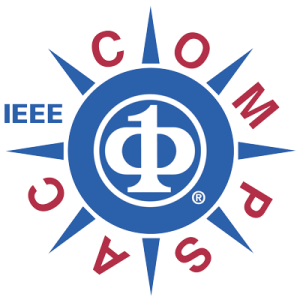

COMPSAC 2025: Harnessing the Power of Intelligent Systems: Shaping the Future
The field of computing is rapidly evolving, driven by groundbreaking advancements in artificial intelligence, machine learning, and data analytics. At the forefront of this transformation lie intelligent systems, poised to revolutionize industries and societies. The 2025 IEEE COMPSAC conference in Toronto will be a global forum to explore intelligent systems’ latest breakthroughs and applications across diverse domains. From autonomous vehicles and smart cities to personalized healthcare and sustainable energy solutions, intelligent systems are pushing the boundaries of what’s possible. Innovative software and hardware architectures are underpinning these systems, enabling the robust, scalable, and efficient execution of complex algorithms and models. Distributed systems, edge computing paradigms, and heterogeneous computing platforms are vital to realizing the full potential of intelligent systems.
This conference invites researchers, practitioners, and visionaries to share their insights, innovations, and experiences in developing and deploying intelligent systems that address real-world challenges. Emerging technologies such as quantum computing and blockchain will also be highlighted, as they hold the potential to unlock new frontiers in computing and engineering by enabling more powerful simulations, secure data sharing, and resilient systems.
The 49th IEEE International Conference on Computers, Software, and Applications (COMPSAC 2025) will be held in Toronto, Canada on July 8-11, 2025. The conference theme is Harnessing the Power of Intelligent Systems: Shaping the Future. Intelligent Systems at COMPSAC 2025 will focus on research and development of computing technologies for their eventual integration into all aspects of society. COMPSAC 2025 will bring together researchers, developers, practitioners, and policymakers worldwide to discuss the latest advances in their fields and their challenges.
Submissions are invited for new and previous workshops in content areas such as:
Submissions may be in the form of long or short papers, posters, abstracts, and the unique J/C format. J/C submissions will describe unpublished extensions to previously published work. Overall, the essential goal of the conference is to promote the development of responsible and sustainable digital technologies to improve our lives and build a better future.
Note on use of AI: The use of content generated by artificial intelligence (AI) in an article (including but not limited to text, figures, images, and code) shall be disclosed in the acknowledgments section of any article submitted to an IEEE publication. The AI system used shall be identified, and specific sections of the article that use AI-generated content shall be identified and accompanied by a brief explanation regarding the level at which the AI system was used to generate the content.